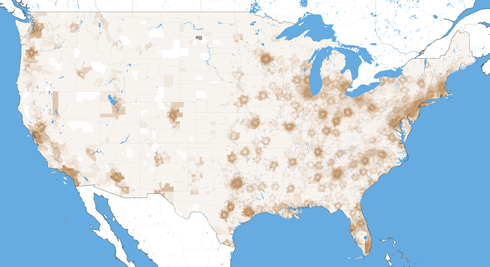Access Across America: Auto 2018
About the study

This study, which estimates the impact of traffic congestion on access to jobs, reveals some significant differences among major U.S. cities in how well they are coping with the problem.
According to the data, the Minneapolis–St. Paul metro area ranked 6th in terms of job accessibility but 28th in the reduction in job access due to congestion. In fact, Minneapolis–St. Paul this year edged above the much-larger Houston, which ranks 7th and has a million more jobs.
“Every year I look at these results, it’s stunning how well Minneapolis–St. Paul does in making it easier to get to work compared to other major U.S. metros,” says Andrew Owen, director of the Observatory. “We have a well-designed and well-managed transportation network that connects people to lots and lots of jobs.”
By contrast, Philadelphia ranks 6th nationally in total jobs but ranks 13th in access to those jobs and 13th in congestion delays. The Boston metro, which ranks 10th in total jobs, also faces significant challenges, ranking 5th in congestion delays and 17th in accessibility.
Key factors affecting the rankings for any metro area include the number of jobs available and where they are located, the road network structure, traffic management practices, the provision of alternate transportation modes, and population size, density, and location. Better coordination of transportation systems with the location of jobs and housing will improve job accessibility by auto.
The findings have a range of uses and implications. State departments of transportation, metropolitan planning organizations, and local government agencies can apply the evaluations to performance goals related to congestion, reliability, and sustainability. In addition, detailed accessibility evaluation can help in selecting between project alternatives and prioritizing investments.
Top 10 metro areas for job accessibility by auto

Top 10 metro areas for loss in job accessibility due to congestion

More Information
- Nationwide study finds big differences in effects of congestion on access to jobs by car (national news release)
- Full report (PDF)
- Methodology report (PDF)
The research is sponsored by the National Accessibility Evaluation Pooled-Fund Study, a multi-year effort led by the Minnesota Department of Transportation and supported by partners including the Federal Highway Administration and 13 additional state DOTs.